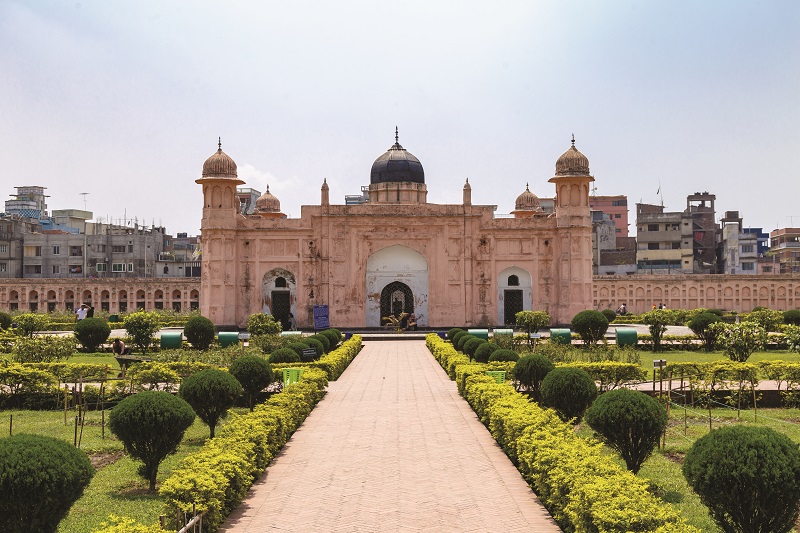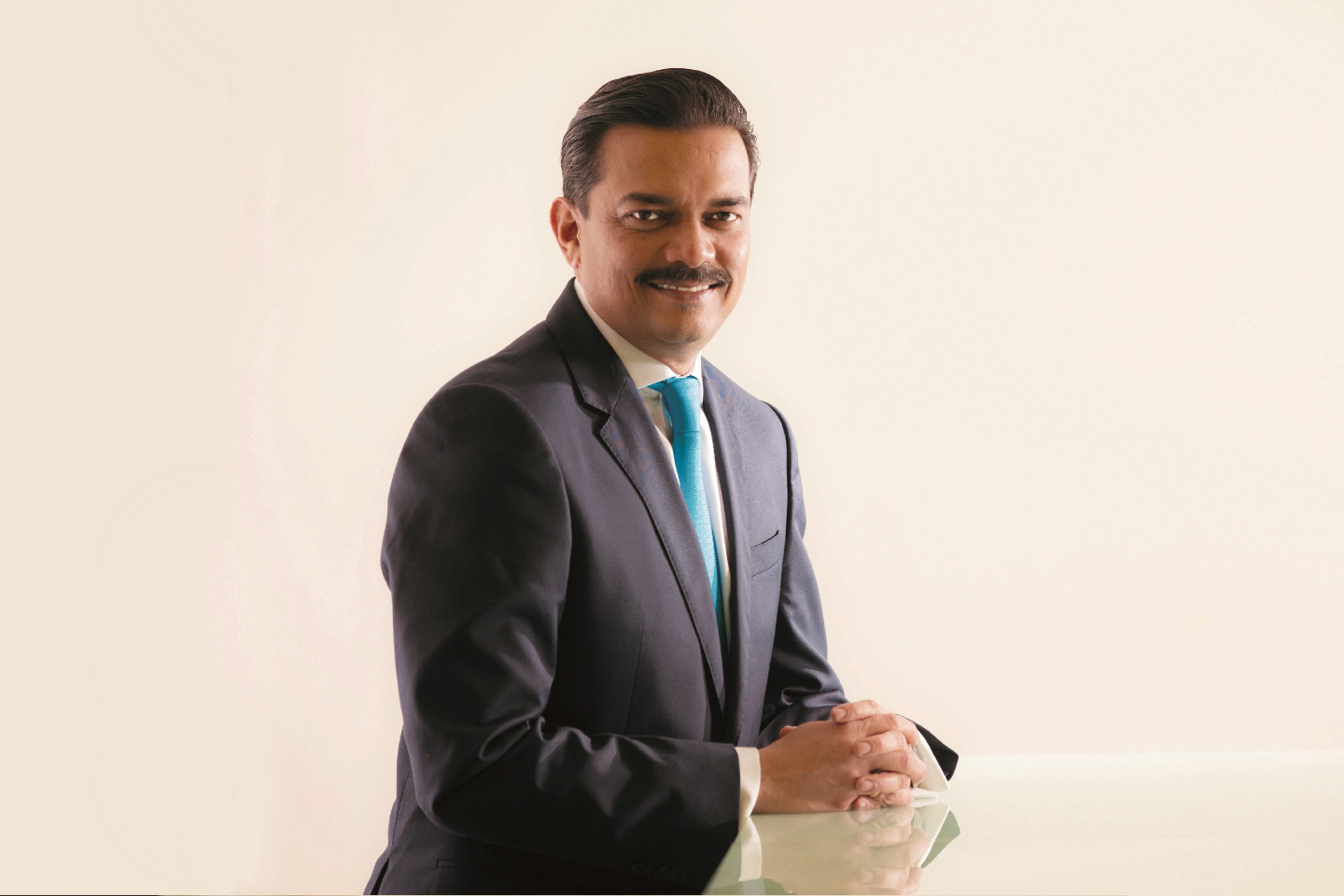
Abrar A Anwar succeeded Andrew Sill as chairman in August, 2020 (Photo: Standard Chartered Malaysia)
The managing director and CEO of Standard Chartered Malaysia has added another role to his stellar portfolio with his recent appointment as chairman of the British Malaysian Chamber of Commerce (BMCC). He talks to Options about what’s next for both the bank and chamber, digital adoption and poignant lessons gleaned from the pandemic.
Options: Congratulations on being appointed chairman of BMCC. How do you feel being chosen to head the 57-year-old chamber?
Abrar A Anwar: I am really delighted and honoured to be appointed chairman. The chamber is a unique organisation that possesses a natural ability to adapt, evolve and deliver a variety of services suitable to the changing times and the needs of its members. I have been on the BMCC board since 2017 and I have seen it accomplish great things in recent years. For this, my commendation to my predecessor, Andrew Sill, my fellow board members and a highly capable executive office, led by executive director Jennifer Lopez, for leading the BMCC to where it is today. We have also been hugely supported by the Department of International Trade (DIT) of UK and the British High Commissioners in Malaysia. I see huge potential for the chamber to expand ever more, and it is our ambition to lead it to greater heights.
What’s on your immediate agenda?
As first steps, I look forward to working with the board, the executive office, fellow members and the British High Commission to identify and create an environment in which both UK and Malaysian businesses can prosper, capture trade and investment opportunities and hence, further strengthen bilateral trade relations between both countries. This will now be even more significant with the impact of the pandemic and Brexit.
23215810_10159432259165386_5484546675948693915_o.jpg
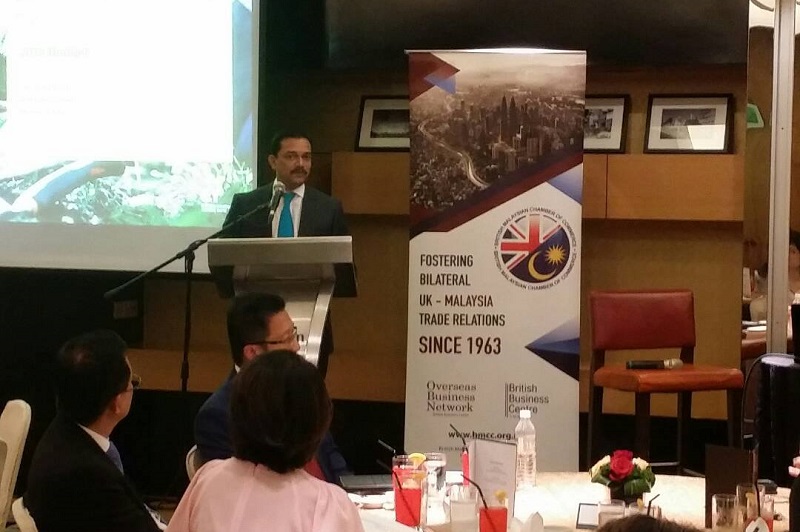
Through the BMCC’s Industry Advocacy, I see the need and potential to continue to grow a community of stakeholders between the public and private sectors. This would consist of active engagement with our members on their constructive views and expertise towards the ultimate aim of a unified stance, to contribute towards policy decision-making, reforms as well as overcoming barriers for businesses to prosper, across various sectors.
As the prime minister of Malaysia recently announced the extension of the Recovery Movement Control Order (RMCO) until Dec 31, 2020, the BMCC will continue to play a facilitative role in member engagement by means of visits and dialogues to both inform and uplift businesses during these challenging economic times.
It is encouraging to see business activities gradually increasing and this applies to the BMCC as well. Our focus for 2021 will be to assist our members and stakeholders in their economic recovery plans, by providing B2B [business to business] as well as B2G [business to government] engagement opportunities, platforms for our members to brand and profile their products and services, and creating various initiatives for the sharing of knowledge, expertise and best practices.
What similarities do you see in both the BMCC and Standard Chartered? Both obviously have impressive histories.
Indeed. And to be representing both organisations at the highest level is a special privilege. The most obvious and important thread shared between the two are their British origins in Malaysia. With the opening of our first branch in Penang dating back to 1875, Standard Chartered is the first and oldest bank in Malaysia. The BMCC shares a similar background. Whilst its modern lineage goes back to 1963, the early foundations of the chamber can be traced to the 18th century.
sc_first_penang_branch.jpg
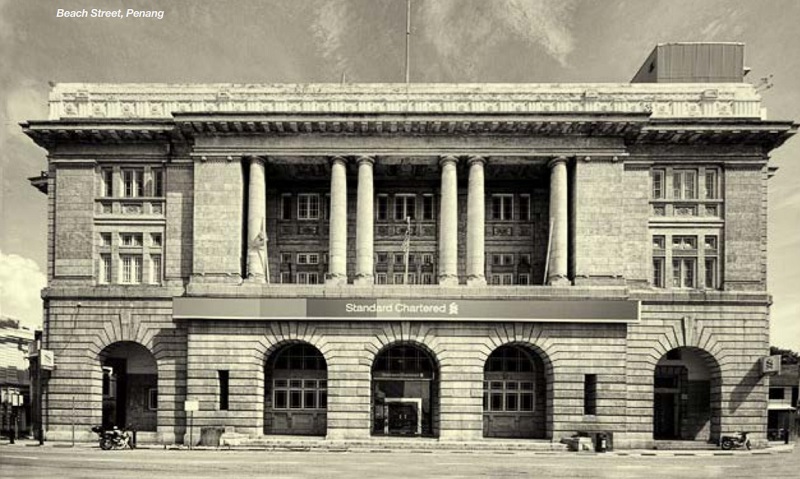
Today, the BMCC has firmly rooted itself as one of Southeast Asia’s most prolific chambers and Standard Chartered is a global leader in financial innovations, consistent with strong growth performance. It is fair to say both organisations have come a very long way since their humble beginnings, not just surviving but thriving in a rapidly evolving and digitalised world. Malaysia is not far behind in the race to digitalisation, and hence many international investors recognise this country as a promising emerging market. As I now occupy the privileged position of heading these two prestigious organisations, it is my aspiration to contribute my experience and resources towards taking the BMCC and Standard Chartered to a whole new level in enhancing bilateral trade between the UK and Malaysia. When I wear the BMCC hat, my role is to represent all member organisations of the chamber.
Everyone has been battered by the Covid-19 headwinds. What advice would you give businesspeople currently struggling with this new normal?
I think the same rules apply to everyone. As you rightly mentioned, everyone has been affected, not just people in business. In a recent poll we did, one third of Malaysians are earning less due to the pandemic but what’s interesting is the same poll showed that most Malaysians are confident of their skills to thrive despite the slump. Willingness to adapt, work harder and reskill is what helps a person stay relevant. Good old-fashioned hard work is important but meaningless if you are too stubborn to adopt new ways of doing things. One example is going digital — which has been a long time coming. What Covid-19 has done is accelerate digital adoption and transformation.
The MCO renewed urgency in digital transformation for businesses to survive and stay ahead of the competition. Those unwilling to do so will be left behind. There are many initiatives and assistance from the private and public sectors that businesses can take advantage of to help them get through this difficult time. At Standard Chartered, we are offering deferments on financing and credit card payments as well as financing aid such as a US$1 billion (RM4.1 billion) financing commitment for businesses already providing or planning to provide goods and services that are essential to battling Covid-19.
344694375.jpg
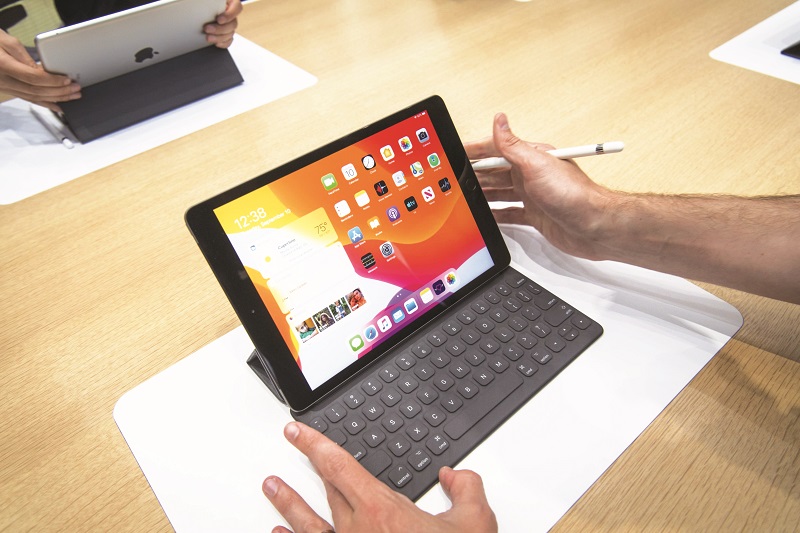
It was a grand 2019 for StanChart, though, with the highest earnings posted in six years. How has 2020 been and what main changes have or will you make to the way the bank does business this year?
We’ve had a resilient 2020, despite the challenging circumstances. In terms of numbers, we managed to grow our client base. The pandemic emphasised the focus on well-being, making it more important than ever to ensure that our people, clients and community are well taken care of. Transparent communication and constant engagement were pushed to the top of the agenda to allay employees’ concerns and reassure clients of our commitment. We rallied with the world in fighting the pandemic by making monetary contributions and donating items like face masks to frontliners. The biggest change we went through was our own digital transformation, which has long been our agenda — and will continue to be so, moving forward. From 2015 to 2018, we invested close to US$1 billion in digital, wealth management and infrastructure, including in areas such as artificial intelligence, chatbots and cybersecurity. We are now best placed to help society endure the virus while providing simpler and more convenient banking to help people and businesses achieve sustainable economic and social development.
During the MCO, close to 80% of our employees were working from home. To facilitate this, we enhanced our digital capabilities and cybersecurity measures such as increased capacity to virtual private network gateways. There has also been a rise in online banking activity among clients and we encouraged them to use our digital and mobile banking channels such as our online banking website, SC Mobile app and Straight2Bank, a digital banking platform for corporate clients. Online banking adoption grew 26% while mobile banking adoption increased 110% and digital sales 369%. Our engagement with clients also migrated to virtual mediums such as webinars and emails. Our goal is clear: to be a digital bank with a human touch. That means making client journeys engaging in a digital manner by giving them the choice to do everything digitally and still get assistance via phone, chat or a video link.
Where did you travel to just before the MCO and why?
I travel to the US regularly as my children are studying in universities in New York and Boston. In March, I was in the US with my wife but was very happy to make it back to Kuala Lumpur before the MCO was enforced. I also travelled to my home country of Bangladesh before restrictions were put in place. Malaysia is very strategically located and well-connected to places where I want to go — with family for leisure as well as for work.
What apps did you find most helpful for work and play during the lockdown?
Definitely BlueJeans, a video conferencing platform that we use in the bank to hold meetings and webinars with our clients. I’m a person who enjoys interaction, so BlueJeans was extremely useful to me. I can continue to engage with employees and clients without having to meet them physically. I am also a heavy user of LinkedIn. It’s my way of keeping updated with my network of contacts. Another thing I like about it is that I get to read insights my peers have to share on their industries. Besides work, I enjoy listening to music, taking golf lessons through video, listening to deliberations on various topics so, at times, I do access YouTube a lot.
bluejeans.jpg
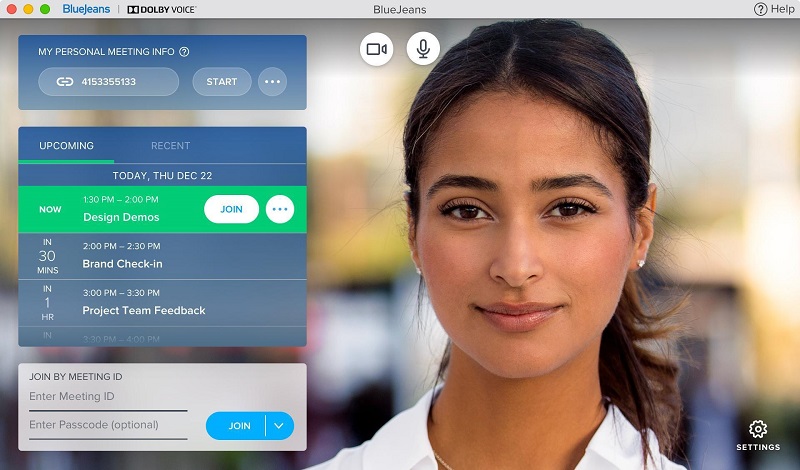
Can you share with us a little about your life here in Malaysia?
I think I’ve visited most of the 13 states in Malaysia, if not all, because I travel a lot to our branches within the country. What I’ve noticed is that, although it is the same country, there is still a diverse range of cultures, from food like Malaccan cuisine to the arts, such as the Kadazan bamboo dance and Kelantanese dikir barat. It is truly wonderful to see so many different cultures live side by side and shows how Malaysia is truly an inclusive society with warm and friendly people.
The bank employs about 8,000 people in Malaysia so you can imagine how diverse we are as well. Inclusion and diversity is a huge part of our group’s agenda and it’s great that the bank recognises the beauty in diversity. I myself sit on the Diversity and Inclusion Council for Malaysia, a country that is a true reflection of diversity, of existing alongside each other in harmony.
In my downtime, I’m an avid golfer and I absolutely love the weather here as it’s perfect for golfing. A plus point is that I get to meet people through golf, which appeals to my outgoing nature. Occasionally, I also gather a few of my friends to play and listen to music — for now, virtually, of course. Overall, I feel Malaysia is a blessed country with so many beautiful places and abundant resources. I am really enjoying my stay and work in Malaysia.
Where is home for you, though?
To me, home is where family is. I grew up in Chittagong, the port city, but later moved to Dhaka. Most of my extended family is in the capital city. I started my banking journey in Chittagong, as a management trainee, and it is also where I met Humaira, my wife of 27 years. My mother still lives in Dhaka and her house is like a command centre as that’s where we all gather and where she keeps track of her seven children through modern devices like the iPad, iPhone and broadband connectivity. She is the glue that keeps the family together. She checks in on us and keeps us connected virtually; in fact, she is now even more tech-savyy than I am!
Standard Chartered is also the oldest bank in Bangladesh, having operated there for more than 115 years. The country is growing at 8%, with 20 million people in the capital city itself. If you ever get the chance to visit Dhaka, I recommend going to the old part, which brims with history. The national monuments and buildings tell the story of the city’s history through architecture — from the Mughal Empire to the British Colonial era.
And what’s top on your travel list once things resume a semblance of normalcy?
First of all, I would like to go to some of the beautiful places in Malaysia that I have yet to visit, like Pulau Redang, Mount Kinabalu and Perhentian Island. Periodically, I like to visit Silicon Valley, birthplace of the biggest tech companies. It is inspiring to hear how these companies started and grew into the giants they are today. The past few months, in particular, have also given me a deep sense of appreciation of all things digital, making me want to learn more. And where better than at the heart of it all? China is also on my list, specifically Shenzhen and Zhongguancun. Both are known as China’s Silicon Valleys — for being a global hub for hardware innovation and a technology hub, respectively.
79367980_l.jpg
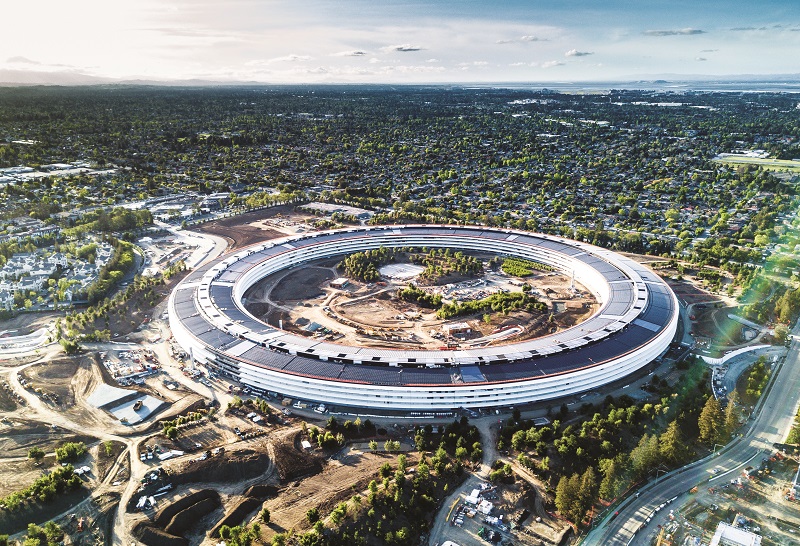
What have been the most important lessons — in work and life — that this pandemic has taught you?
My biggest takeaway from this pandemic is the importance of being adaptable and not conforming to your mindset. There are many ways to approach things and, as long you put your mind to it, it can be done. Before this, I didn’t think it was possible to operate a bank remotely. But during the MCO, close to 80% of us were working from home for long periods and our operations remained uninterrupted. Our investment in technology has definitely borne fruit. I was amazed and am still blown away by how everyone continues to deliver, even with the challenges and sudden change in the work environment.
The lockdown has also made me grateful for the little things in life; things that I previously took for granted, such as walking to a nearby eatery, they seem so precious now. Just the other day, I got all excited being caught in traffic on the way to work. It reminded me of how easy we took things before the pandemic. I am also so grateful we live in an age of technology. I am unable to fly home to meet family but still get to keep in touch with them over the phone and on video — and that is what matters most.
This article first appeared on Sept 21, 2020 in The Edge Malaysia.

